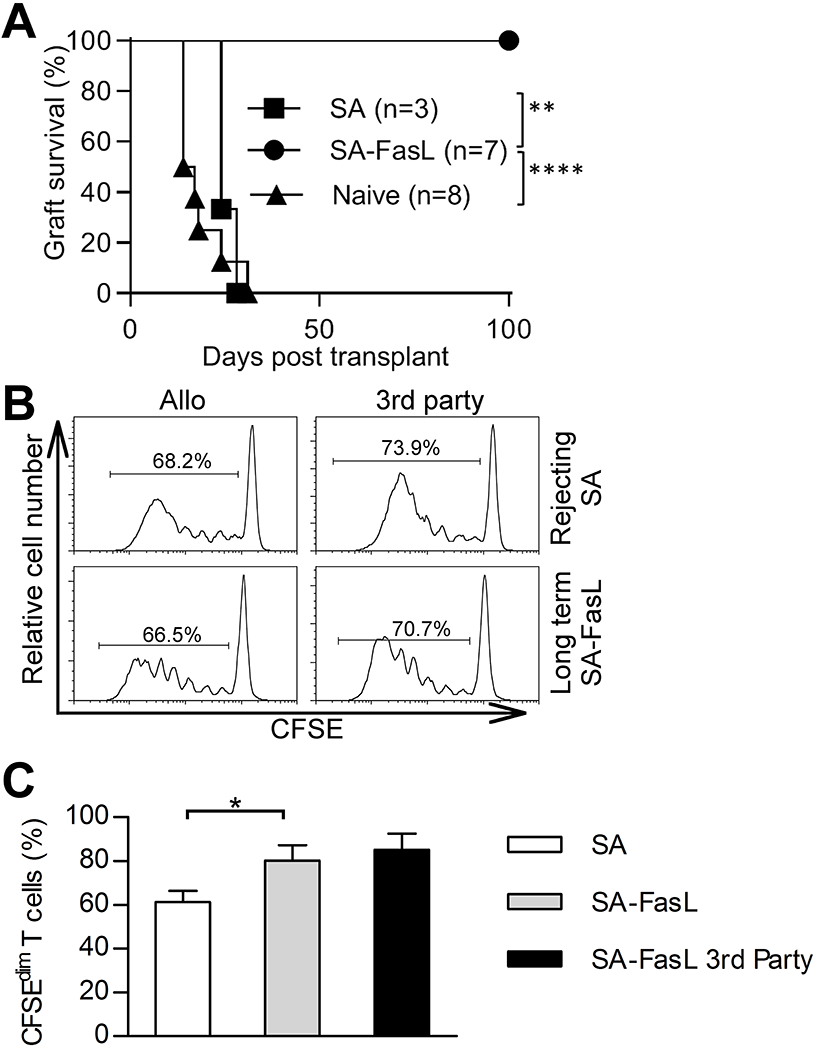FIGURE 2.

Survival of SA-FasL-engineered allogeneic islet grafts in the absence of systemic unresponsiveness to donor antigens. A, Survival of BALB/c allogeneic islet grafts engineered with SA-FasL or SA control protein under a short course of rapamycin (0.2 mg/kg daily for 15 doses starting on the day of transplantation). Recipients of unmodified allogeneic islet grafts without rapamycin served as controls. Data were analyzed using log-rank test (**p < 0.01 and ****p < 0.0001). B, In vivo proliferation assay. Splenocytes were harvested from recipients of allogeneic SA-engineered islet grafts at rejection or SA-FasL-engineered allogeneic islet grafts after 100 days post-transplantation. Cells were labeled with CFSE and injected i.v. into F1 (C57BL/6 x BALB/c, H-2b/d) or (C57BL/6 x C3H, H-2b/k) mice to test their proliferative response against donor and third-party antigens, respectively. C, Tabulation of the data shown in (B). Points indicate values for individual mouse, bars indicate means ± SEM, and statistical significance was calculated using a one-tailed unpaired t-test *p < 0.05.
